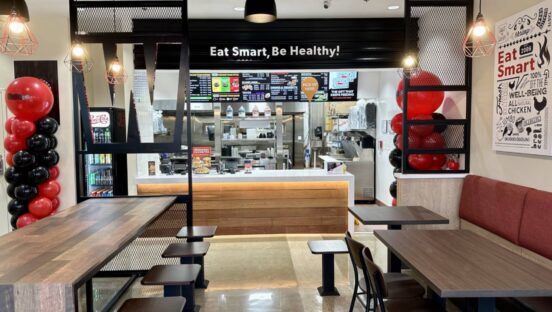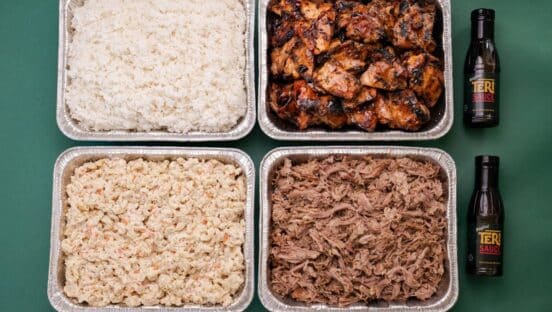Credit flowed so freely before the recession that people in the restaurant industry often use hyperbole to describe how easy it was to get financing before the collapse.
“I could have gotten my dog a loan three years ago,” says Paul Steck, president of Saladworks.
“The perception was, anyone who can breathe can borrow,” says Mitch Jacobs, founder of On Deck Capital, a lending technology company that works extensively with restaurant operators.
“We went through a period in society when nobody ever heard ‘no,’” says John Hamburger, president of the Restaurant Finance Monitor.
But after the financial meltdown, when overleveraged commercial banks large and small were imploding around the country, the flow of credit came to a standstill. Suddenly, operators couldn’t get a loan big enough to buy a dog, let alone the financing necessary to open a new restaurant.
As time passed and the economy backed away from the precipice—at least a few inches—the credit markets remained frozen. Restaurant franchisees who were used to walking into a bank and easily securing a loan grew increasingly frustrated as their best-laid expansion plans went awry. For some operators, frustration turned to fear when the lack of access to capital threatened their ability to pay the bills.
“I’m so scared right now I can’t even sleep at night,” John Brodersen, a Popeyes franchisee in Detroit, said in August, shortly after Treasury Secretary Timothy Geithner wrote a New York Times op-ed titled “Welcome to the Recovery.” Unable to get a bank loan—“I could wallpaper my walls with rejection letters,” he said at the time—Brodersen didn’t agree that a recovery was underway.
Now, however, things have changed—not dramatically, but noticeably.
“It was like the sky was falling before,” Brodersen says. “But now I see some hope. I know for at least three years, I’m not going to go bankrupt.”
The cause of Brodersen’s relative optimism is a recent closing on a $3 million deal, something he says would never have happened earlier in the recession. While securing financing for the deal was a chore—“I’ve spent a third of my life over the last two years talking to bankers,” Brodersen says—the fact that it got done signals a slight thaw in the credit markets.
“Toward the end of [the third quarter of 2010], you could hear it in the bankers’ voices that things were a little different,” Brodersen says. “It sounded like they got their ducks in a row and were starting to at least send out proposals.”
Of course, things are far from what they used to be. Banks are scrutinizing loan applications much closer than before, and they have almost doubled their debt-to-cash-flow ratios. The stricter criteria make it harder for any business to get financing, but the prospects are even worse for restaurants.
Banks have always viewed the restaurant industry warily because of the high fail rate in the business and because the industry’s specialized equipment has little collateral value. Now, with the emphasis on cash flow stronger than ever, restaurateurs have a lot to prove when they apply for a loan.
“The financial statements of the restaurant companies probably don’t look very good [to banks] right now,” Hamburger says. “If you’ve got declining sales, declining income, declining margins, it is easy for the banks to say ‘no.’”
But, Hamburger says, the credit crisis has been exaggerated. Before banks started lending to anyone with a pulse in the mid-2000s, restaurants always had to make a strong case to get a loan. Historically, those businesses that impressed banks with a sound loan package were approved, and those that didn’t were rejected. In the wake of the financial collapse, that simple standard has been reestablished, Hamburger says.
“Companies that have decent operating results have been able to get financing,” he says. “For companies that don’t have decent operating results, it is a new game.”
And the new game is not much fun. Operators who have had recent success in securing a commercial loan, at community banks for the most part, do not have any exciting secrets to share. Their advice boils down to the obvious: show good cash flow; have experience in the industry; craft a concise loan package; don’t dwell in the details; and don’t leave anything crucial out.
“The worst thing restaurants can do is give the banks only 70 percent of what they need, because it sits in the ‘waiting for more information’ pile, and it loses momentum,” says
Joseph Houk, a CPA and former commercial banker who now secures financing for a D.C.-based restaurant company.
Houk says having a knowledgeable number-cruncher who knows what banks are looking for can help a restaurant’s chances at getting a loan.
“I’m going to make it easy for banks to say ‘yes,’” Houk says. But, he adds, “there is no magic secret.”
There are, however, alternatives to commercial loans. Private money, for example, has become a viable financing option for restaurants, especially as low interest rates in money market funds or CDs and an unstable stock market have made those investments less attractive.
John Cassity, a former commercial lender with J.P. Morgan Chase and Bank of America, operates six Einstein Bros. Bagels in Colorado’s Western Slope. He is financing the growth of his franchise in part through private funding.
“Right now private money is an option, and it’s a great option because you can structure it without some of the heavy regulation and compliance that you have to deal with in a bank,” Cassity says.
[pagebreak]
With banks “gun shy,” Cassity tapped into private sources of funding to take advantage of “striking opportunities.” Securing private money depends a lot on who you know, as opposed to the more systematic process of securing a commercial loan. But with “trillions of dollars sitting on the sidelines,” Cassity says more of it will flow into the restaurant industry despite the high risk.
“Investors definitely take a greater risk than if they left it in a CD or a savings account,” he says. “But they risk earning nothing on their money” if they keep it under the mattress.
Saladworks, which is based in Conshohocken, Pennsylvania, is exploring a different solution to the financing issue. In an effort to continue expanding beyond its 11-state operating region, the company launched an internally funded leasing program that gives operators a chance to own a Saladworks franchise with only a $75,000 initial investment.
Under the agreement, Saladworks supplements the balance of the startup costs and takes a percentage of the store sales. At the end of a 10-year lease plan, the franchisee has the option to purchase the store outright.
Steck, the company’s president, says the idea arose directly from his frustration with the slow process of bank lending.
“We were not getting no's,” Steck says. “We were just not getting yes's.”
In June, the company decided to take matters into its own hands and launched the leasing program. So far, two operators have taken Saladworks up on the offer, and Steck expects to ink 10 deals through the program by the end of the year. While the company assumes a lot of risk in fronting the lion’s share of the start-up costs—opening a Saladworks can cost from $350,000 to $500,000—Steck says he is “willing to bet the farm” on experienced operators in order to grow the company brand.
For the operators’ part, the profit-sharing arrangement is not ideal, but with limited access to traditional financing, the program gives them a chance to open new restaurants with a relatively low buy-in.
“A franchisee with very little money can essentially have a restaurant built out for them completely turnkey, soup to nuts,” Steck says. “We just give them the keys. ‘Here you go. Here’s your store.’”
While the program grew out of the credit crunch, Steck says he plans to make it part of Saladworks’ growth strategy even after the economy picks up.
“We’re going to be doing this long term,” he says. “I don’t see why not.”
For franchisees in systems without corporate financing options, other nontraditional lines of credit are available, like the ones offered by On Deck Capital.
In 2006, two years before the recession hit, Mitch Jacobs founded a company that no one seemed to need. On Deck Capital offered loans to small-business operators who had been rejected by commercial banks, none too common amid a historic period of loose credit.
Now the company has emerged as a lifeline to small business operators, particularly in the restaurant industry, who are unable to secure a commercial loan.
The company’s short-term loans average $30,000 and carry annual interest rates from 18 to 36 percent—multiples higher than typical bank rates. It decides whether to advance a loan based on a computerized data-gathering system that looks at a business’ online banking account, credit card processing, credit scores, and other factors. This saves business operators from lugging stacks of records to banks to initiate a lengthy application review.
“It is 80 hours of labor boiled down to 15 minutes,” Jacobs says.
To date, On Deck has provided more than $80 million in loans, much of it to restaurant operators, who make up 20 percent of its clientele. On Deck’s typical restaurant client has three to four locations, and revenues from $250,000 to $4 million. Instead of its clients paying back the loans in monthly installments, On Deck automatically receives daily micropayments of about $100 from their bank accounts.
Jacobs criticizes commercial banks for dealing with small businesses as if they were individuals and putting undue emphasis on the applicant’s personal credit score.
“It was very clear to me back in 2006 that the U.S. financial system had no category of products that was for Main Street small businesses,” Jacobs says. “The banks were offering consumer products to Main Street small businesses as a work-around.”
In looking comprehensively at a business’ financial viability, On Deck is a lending model tailored to small businesses. And with so many aspects of the financial system being called into question, it may be a sign of where commercial lending is headed.
“This is a rare moment in time where some really good things could happen for [small businesses] regarding access to capital,” Jacobs says. “Because the personal credit scoring system is regarded as broken, banks are going to have to seek an alternative … that works in favor of the small business owners instead of against them. And that has not been the case.”
For now, companies like On Deck and initiatives like Saladworks’ internal leasing program show how American business is rethinking financing in the wake of the Great Recession.
“This is what makes entrepreneurship in America so exciting,” Steck says. “Companies all faced with the same dilemma are coming up with different approaches to the same problem. That’s kind of cool.”







